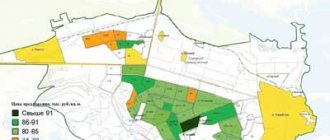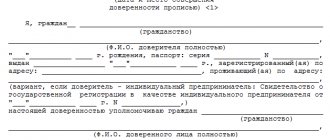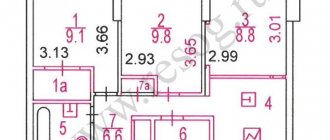In short, no. The entry of the owner of the premises into the HOA is his right and occurs voluntarily. There is no liability for refusal to join the HOA, and membership in the HOA arises on the basis of an application to join the partnership. Details in today's article.
RF PP No. 331: information disclosure rules for HOAs, residential complexes, housing cooperatives
330961
What kind of associations are these in the housing and communal services sector?
ZhSK is a housing construction cooperative. It is created directly for the construction of a house, and in the future its repair and reconstruction will be under the responsibility of the cooperative.
The minimum number of people who must be in a cooperative is 5 (Housing Code, Article 112).
The main body of the board is the chairman (LC RF Article 115).
Homeowners' association (House Code of the Russian Federation, Article 135) is a homeowners' association. Such a partnership was created so that it would be possible to independently manage the common property and promptly provide the necessary services. All homeowners in a given building can join the partnership. But not less than 50%. An HOA must have its own Charter. And according to the law of the Housing Code, namely Art. 45—, The charter must be approved by 100% of the owners.
Read all about what an HOA is in an apartment building, what the essence of the activity is and what the forms of its existence are.
What is the difference between them?
After changes were made to the housing code in 2015, there were no more changes. Accordingly, those data are still relevant today.
| HOA | Housing cooperative |
| Partnership of real estate owners (99-FZ dated 05/05/2014, Housing Code of the Russian Federation). | Consumer cooperative (Civil Code of the Russian Federation, Housing Code of the Russian Federation). |
| A non-profit organization that has the right to exist only if more than 50% of the owners vote “For” (Article 117 of the Housing Code). | An NPO will be formed if there are at least 5 people ready to join the cooperative. |
| Created after the construction of an apartment building or village. | Formed before construction is completed. In the initial stages. |
| The main goal will be participation and management of an already built house and joint property. Solving necessary business issues. | The main goal is the construction work itself. And after the commissioning of the facility, it can exist to participate in the operation of common premises and territories. |
| All income belongs to the organization. | The proceeds can be divided among the founders of the cooperative, that is, all participants. |
| It can unite several houses and the leader will be one common cooperative. | Has the right to exist only in one specific house, whose construction they controlled. |
| Any decision is made by the general meeting. | Whatever the majority votes for, so it will be. |
| The law establishes the possibility of conducting absentee voting. | Absentee voting may take place if it is specified in the Charter. |
| The owner of a home in a specific building can become a member of the cooperative. | Any person who has reached the age of 16 can join (Article 111 Part 1 of the RF Housing Code) |
| There is no limitation on the duration of work, but the duration of existence may be determined by the Charter. | The duration of existence is not limited. |
IMPORTANT: All decisions are made at the meeting. Absolutely every owner has the opportunity to express his opinion on this or that matter.
Algorithm for joining a partnership
Before becoming a member of an HOA, you will need to go through a certain procedure.
It consists of the following actions:
- collection of necessary documentation;
- filling out an application to join the partnership;
- drawing up an agreement. The basis for membership in the organization in question is an agreement drawn up between the chairman of the board and an individual citizen;
- making changes to the registry. This act reflects the current composition of the HOA.
After completing these actions, a person can be considered a member of the partnership.
Documentation for joining the HOA
Before becoming a member of the HOA board, you will need to collect a certain list of documentation.
Including:
- statement;
- a document by which identity is verified;
- acts confirming the availability of housing rights;
- an extract made from the Unified State Register of Real Estate;
- power of attorney, provided that a third party acts on behalf of the citizen.
After the submitted papers have been reviewed, a decision is made regarding the possibility of accepting a person as a member of the partnership. This happens through voting . The result is recorded in the protocol.
What is the difference between accounting in one and another organization?
Homeowners' associations and housing cooperatives are non-profit organizations.
Considering that there is still cash flow there, accounting is mandatory in both cases.
Items that must be taken into account:
- Funds coming from homeowners and other business activities.
- Costs of maintaining the house and surrounding area. Also expenses that will be required in the near future.
- Materials and production inventories.
- Reporting on fixed assets at the enterprise.
- Reports on the results of work done in houses or on the territory.
Attention! For the stable operation of partnerships and cooperatives, full interaction between owners and housing service providers is necessary.
The peculiarity of the account of the non-profit housing cooperative is that the initial savings for working capital are nothing more than the entrance fees of each member of the cooperative. These funds are non-refundable, even if you leave the cooperative. In addition to membership and share fees, cooperatives can resort to borrowing the required amount of funds from banks.
Unit deposits are used for capital investments. This must be provided for in the charter. If the owner decides to leave the cooperative, the targeted contributions will be returned to him. Accounting of funds is not carried out generally, but specifically for each of the owners. Membership fees are non-refundable. The funds are spent on administrative and economic needs. At the time of creation of the cooperative and when registering the charter, everything must be properly documented by an accountant.
When reconciling the balance sheet, excess expenses are reflected in current assets, and if expenses are less than the money collected, they are reflected in short-term liabilities. If there is a shortage of funds in one account and an excess expense in another, the accountant must reflect it in the debit and credit balance.
Housing cooperatives do not engage in entrepreneurial activities and are therefore exempt from paying income and highway taxes. Also, the cooperative does not have to pay property taxes. And according to the clauses of the Tax Code, membership fees and share contributions are not subject to deduction of income taxes. All entry fees until the house is handed over must be reflected in the appropriate records by the accountant.
If the cooperative’s activities are also entrepreneurial, the expenditure and income of targeted funds must be conducted separately. Estimates for targeted needs and for utilities must take into account future payments. Payments for electricity, gas, and telephone are not taken into account by housing cooperatives; members of the cooperative bear the costs themselves. The housing cooperative plans only to pay for hot and cold water supply, heating, garbage collection, etc.
In HOA accounting, things are a little different. One of the main tasks is the generation of financial statements that reflect reliable information about the activities of the HOA. The accountant must provide an estimate of income and expenses for the next year. Reports must be approved at the general meeting. Taking into account the amendments to the law, now, under Article 20 of the Housing Code, residents have the right to submit an application so that the activities are checked whether everything in the Charter is legal (who is responsible for the illegal actions of the HOA, the types of fines and penalties for violation of powers, are described in detail here) .
HOAs must report to tax authorities and extra-budgetary funds. Regardless of the fact that the HOA is a non-profit organization, reporting and calculations are required. Only homeowner contributions are tax-deductible; all other financial transactions are taxable.
Some HOAs found a good solution by choosing the simplified tax system. The system provides some advantages when accounting for receipts. In addition, regional benefits are also provided.
One of the important points is the implementation of a major renovation of the building. These funds received from owners are not subject to taxation. Also, budget money can take part in major repairs. Read separately about major repairs and HOAs, registering a special bank account, collecting contributions to the fund for the major repairs of apartment buildings and other nuances.
IMPORTANT: Real estate market experts state the fact that the cost of housing in an HOA is higher than the market price.
Why did this topic even come up?
I recently came across a survey on the Housing and Communal Services Telegram channel, which I read to improve my legal knowledge when communicating with neighbors and utility workers. The author asked subscribers whether they trust the accounting department of their HOA. It turned out that 2/3 do not trust, and half of them have encountered accounting dishonesty.
The result was not surprising. Scandals involving HOAs regularly appear in the press. Three complaints are most often made against the management of the HOA.
- Inflated payments, when, for example, receipts for consumed heat and electrical energy are issued to owners according to the standard, and money is transferred to resource supply organizations based on the readings of common house meters.
- Payment to affiliated contractors for work that was not actually performed or was performed, but its market price is lower than the amount paid.
- Concealing HOA income from apartment owners. For example, from advertising or renting out common areas.
How do accountants steal? Such studies have not yet been conducted. I became interested, and I analyzed the verdicts in criminal cases against HOA accountants over the past five years. It turned out that the majority of convicts use one of four simple schemes. These schemes fit into Art. 159 of the Criminal Code of the Russian Federation “Fraud” and Art. 160 of the Criminal Code of the Russian Federation “Misappropriation or embezzlement.”
Can one transform into the other?
There is also the option that the housing cooperative can be formally dissolved and merged as an HOA (House Code of the Russian Federation, Article 122). The cooperative at a general meeting of all its members can make this decision (Article 145 of the Housing Code).
The procedure for creating an HOA will not be anything special or simpler.
You will need to do the same thing as during the normal formation of a partnership. The only thing is that the application for state registration will be in a slightly different form, and it will also require drawing up a transfer deed.
It is worth taking into account that Article 136 of the housing legislation of the Russian Federation clearly states that there can only be one HOA in one house (about an HOA for one house, about how many apartments and entrances in an apartment building can be part of this type of partnership, and about other nuances, read separately).
But the owners can change the management option if such a decision is made at a general meeting (in accordance with Article 161, paragraph 3 of the Housing Code).
REFERENCE: According to Housing Code 140, an HOA can transform into a housing cooperative.
Fight for the rights of owners and look for ways to solve problems
Through thorns to the stars - this is how one can characterize the path to the creation and formation of TSN “Family”, which manages a 12-story apartment building in Vladimir. TSN also became the winner of the Superhouse Management competition, and was previously recognized as an exemplary partnership of owners, the best in the Vladimir region. Chairman of the Board of TSN Alla Pankratova shared her experience on how to create TSN in a new building and not give up in the fight with the developer and administration.
It is difficult to create a TSN in a new building because it takes a lot of work to find and invite all the owners to the OSS. The initiative group of future residents of the house, having learned that the house was put up for an open competition to select a management authority, made a lot of efforts to organize the meeting after all.
The first meeting is the most difficult, because the owners are still unfamiliar with each other, and they have to choose the TSN board, vote for people whom they meet for the first time. Just as difficult as electing the TSN board, it turned out to choose a name for it that would suit everyone.
The next very problematic stage is accepting the house from the developer in the absence of experience in managing an apartment building. Moreover, the developer in the case of TSN “Family” insisted on signing an acceptance certificate for the house with numerous violations.
The construction company also demanded that the owners abandon the partnership in favor of an affiliated management company and pay the debts accumulated over the years of construction to the RSO for electricity. Blackmail and threats were used: the doors to the technical floors were welded shut in the house, and the electricity and water supply were turned off. But the residents of the new building did not give up and ensured that the developer eliminated the shortcomings and violations.
The house was accepted, but there was no lighting in the yard. The city administration did not take on board the new electrical networks and did not enter into an agreement with the electricity supplier. As a result, after eight months of struggle, the owners decided to carry out work on the technical connection to the transformer substation at their own expense, contacting the owner of the substation and the RSO.
The problem was that the territory without lighting was adjacent to six new buildings, and the administration refused to carry out land surveying so that TSN could register the land as shared ownership.
The land surveying project appeared only 1.5 years after the house was put into operation. All this time, the chairman of TSN was actively working with the owners of neighboring houses and the city administration.
The only road that leads to the new building has not been accepted onto the city’s balance sheet; it is considered unfinished and remains on the balance sheet of the developer, who refuses to clear it of snow in winter. Services for removing snow from the road using special equipment are paid for by TSN.
Creating TSN: where to start
223350
Do they have jobs and how are they paid?
As for wages, housing cooperatives and homeowners associations have this, of course. You can receive wages in a partnership or cooperative. It will be accrued from the moment the employment contract is signed. On its basis, the employee, in accordance with internal regulations, is obliged to perform the work required by his position. The amounts of payment will be established by the members of the partnership or cooperative at the general meeting. This article describes which personnel are required on the staff of an HOA, and which positions employees can be recruited for at will, as well as the job descriptions of employees.
According to Article 65 of the Housing Code, the rights and obligations of everyone who is part of the partnership can be changed.
What do we end up with? Each owner will have to independently decide what, in his opinion, will be better - a homeowners' association or a housing construction cooperative. You shouldn’t make a hasty decision; the right thing to do first is to add up all the pros and cons of both.
But no matter what choice is made, the main aspect will still be caring owners. If the owners are directly involved in the life of the house, the house will prosper and everyone will be happy!
Membership termination procedure
If the quality of work performed does not suit the apartment owner, he has the right to contact the HOA with a request to terminate the contract. At the general meeting, a decision is made on expulsion from members of the partnership upon application. The decision is documented by recording the decision in the protocol.
Membership is terminated unilaterally if this is provided for in the current agreement. For example, if citizens refuse to pay the receipt, ignore the rules of residence, or improperly use the premises, the owner is excluded from the HOA. Since the exception does not relieve one from financial obligations, payment of utility bills is mandatory.
The reason for termination of participation may be the death of the owner. The heirs have the right to transfer the responsibility for maintaining the house to the same HOA by submitting an application for participation.
Is it possible to terminate my membership automatically?
Sometimes a situation arises where membership is automatically terminated. This happens if any member leaves the organization, and this results in the loss of the majority of votes cast for service through the owners' association. Since the law requires more than 50% of the votes, loss of a majority results in automatic termination of membership.
- Agreement with the management company: rules for concluding, changes
It is possible to switch to an alternative method of organizing maintenance of apartment buildings - through a management company. The second option to do without reorganization is to convince other owners and find new voices in favor of service through the partnership.
When the majority is lost, a general meeting is held and a vote is taken with the results recorded in the minutes of the meeting.
Remember
The given examples from the work of MA and TSN, which successfully fulfill the responsibilities of managing apartment buildings, show that this is possible if
- Actively involve residents in the process of managing the house through the House Council and general meetings.
- Train employees and improve their qualifications.
- Use modern technologies to communicate with residents of apartment buildings and provide them with information about the activities of the management authority, TSN/HOA.
- Know the legislation in the field of house management, strictly follow the requirements of legal regulations and defend the rights of owners before third-party organizations, government agencies, and in court.
- Build systematic work in the management team/homeowners association.
- Carefully treat all houses under management.








